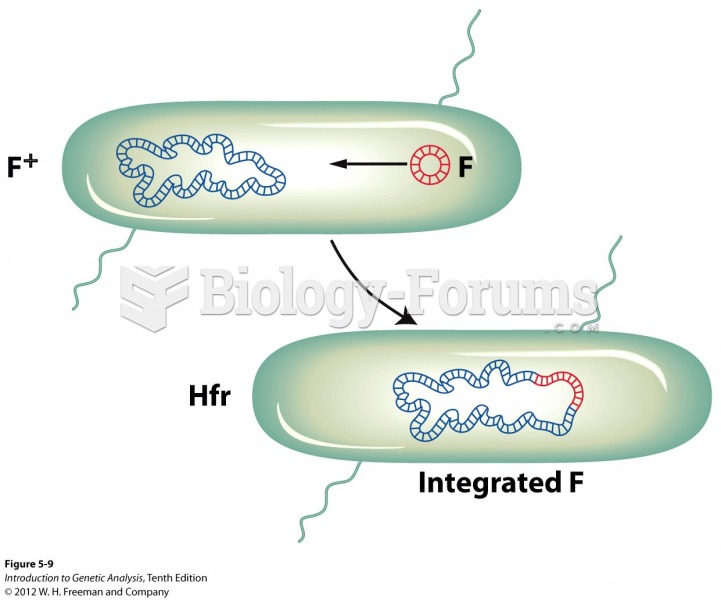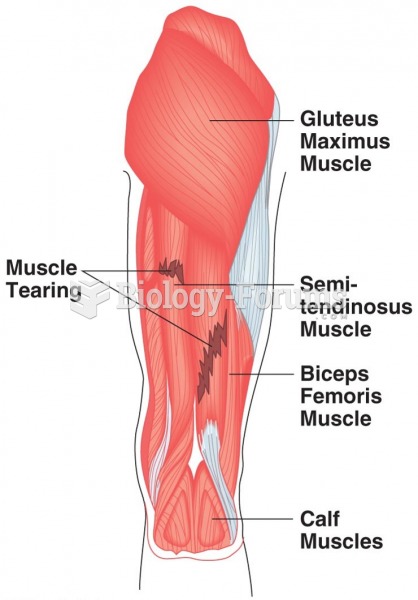This topic contains a solution. Click here to go to the answer
|
|
|
Did you know?
The human body produces and destroys 15 million blood cells every second.
Did you know?
Many of the drugs used by neuroscientists are derived from toxic plants and venomous animals (such as snakes, spiders, snails, and puffer fish).
Did you know?
Vampire bats have a natural anticoagulant in their saliva that permits continuous bleeding after they painlessly open a wound with their incisors. This capillary blood does not cause any significant blood loss to their victims.
Did you know?
Egg cells are about the size of a grain of sand. They are formed inside of a female's ovaries before she is even born.
Did you know?
Increased intake of vitamin D has been shown to reduce fractures up to 25% in older people.







